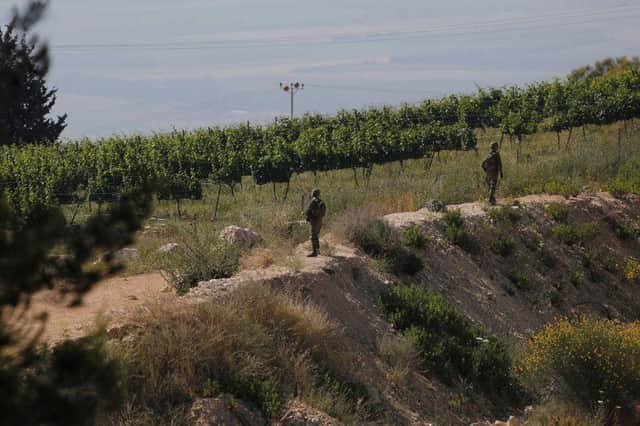Israel carries out airstrikes on Lebanon after president Joe Biden calls for 'significant de-escalation'


Israel have carried out airstrikes in Lebanon after four rockets were fired from their northerly neighbour.
One rocket was intercepted by Israel’s Iron Dome defence system, another landed in a field, while the other two hit the Mediterranean Sea.
Advertisement
Hide AdAdvertisement
Hide AdThe Times of Israel reported that warning sirens were sounded in the city of Haifa, as well as the Shfaram, Acre and the Krayot regions.
The Israeli Defence Force confirmed that they had retaliated “striking a number of targets”.
It tweeted: “4 rockets were just fired from Lebanon at northern Israel, 1 of which was intercepted by the Iron Dome.
“In response, IDF artillery forces are striking a number of targets in Lebanon.
It added: “We are prepared for any scenario on any front.”
There is not yet reports of any casualties in Lebanon.
Advertisement
Hide AdAdvertisement
Hide AdThe exchange comes after US President Joe Biden called for a significant de-escalation following violence between Israeli forces and Hamas. Over 200 people – the majority of them Palestinian - have died since May 10 when Hamas fired rockets into Israel and the IDF responded with airstrikes.
What did Joe Biden say?
Mr Biden asked Mr Netanyahu to move "towards the path to a ceasefire", according to a White House description of their conversation.
The US president's call came as political and international pressure mounts on him to intervene more forcefully to push an end to the hostilities.
Mr Biden had until Wednesday avoided pressing Israel more directly and publicly for a ceasefire, or conveyed that level of urgency for ending Israeli air strikes targeting Hamas in the densely populated Gaza Strip.
Advertisement
Hide AdAdvertisement
Hide AdHis Biden administration had relied instead on what officials described as "quiet, intensive" diplomacy, including quashing a UN Security Council statement that would have addressed a ceasefire.
The administration's handling opened a divide between Mr Biden and Democratic legislators, dozens of whom have called for a ceasefire.
What has the UK said about a ceasefire?
Foreign office minister, James Cleverly, said the international community is “pulling together” to restore permanent peace in the region and called on all parties to work to “reduce tensions”.
Mr Cleverly also condemned “acts of terrorism by Hamas” in the Middle East and urged the Israeli government to “adhere to the principles of necessity and proportionality” when “defending its legitimate security interests”.
Advertisement
Hide AdAdvertisement
Hide AdHis comments came as shadow foreign office minister Wayne David urged the UK Government to “do everything it can” to restart a meaningful peace process “as a matter of urgency”.
Speaking during an urgent question from Labour on Israel and Gaza in the Commons, Mr Cleverly told MPs: “The UK unequivocally condemns the firing of rockets at Jerusalem and other locations within Israel.
“We strongly condemn these acts of terrorism by Hamas and other terrorist groups who must permanently end their incitement and rocket fire against Israel. There is no justification for the targeting of civilians.
“Israel has a legitimate right to self-defence and to defend its citizens from attack.
“In doing so, it is vital that all actions are proportionate, in line with international humanitarian law and make every effort to avoid civilian casualties.”